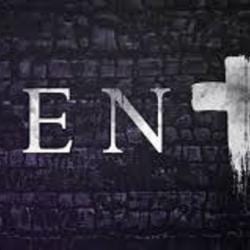By Beth Davies-Stofka - June 12, 2009
Students new to the study of Buddhism have difficulty understanding how Buddhism can teach reincarnation while simultaneously holding the anatta, or no-soul doctrine. If there is no soul, then how is reincarnation possible?
While there is no single answer to that question, one dramatic illustration is found in the Tibetan spiritual classic entitled Liberation through Hearing in the Intermediate State, also known as the Tibetan Book of the Dead. A Buddhist scripture attributed to the legendary 9th century missionary Padmasambhava, the book describes the journey of the deceased between death and reincarnation.
Last summer at the Center for EduPunx, a Colorado think tank, my colleagues and I began discussing the potential of using Second Life to develop a game that would guide students through the Tibetan Book of the Dead and bring to life its story of Buddhist reincarnation. We received a grant from Front Range Community College to develop the idea, and the team has recently completed a beta version of the game.
The Tibetan Book of the Dead teaches that when we die our awareness is separated from our body, and enters the intermediate state that lies between death and rebirth. Once there, it creates its own dream-like reality, a profoundly emotional and sensory experience. The book provides vivid and dramatic descriptions of the experiences of the deceased as it wanders in various phases called Bardos that are both heavenly and hellish. Peaceful and angry deities appear. Lights and sounds compete for the deceased's attention. The experience is alternately fantastic, seductive, ominous, and terrifying.
Since the deceased is dislocated from its mortal body, it is confused. It needs help and guidance if it is to find liberation in the Bardo. Indeed, the book itself is a sensory experience, written so that it could be read out loud to a dead person, to help them survive the afterlife and achieve the best possible outcome. The voice of the guru, or lama, accompanies the deceased on the journey.
By creating a Bardo game in Second Life, we can immerse students in this intensely sensory experience. Chris Luchs, State Technology Counselor for Colorado Small Business Development Center and one of the Bardo game's developers explained, "Games are immersive. They provide visual stimulation, audio stimulation, and a measurable physiological reaction. By stimulating their senses, students buy into their experience and become very focused on the game." The virtual world of Second Life is both stimulating and demanding. It provides an outstanding opportunity for us to approximate a direct encounter with the afterlife.
The Tibetan Book of the Dead repeatedly challenges us to avoid rebirth by recognizing the way to a better realm. Throughout its journey in the Bardo state, the deceased encounters progressively difficult challenges to demonstrate wisdom and win enlightenment. Although the lama is reading the book aloud to assist the deceased, it is up to the deceased to successfully meet the challenges and assure an advantageous outcome.
The Second Life Bardo game adapts the challenges presented in the book to a game strategy, challenging students to figure out how to win the game by escaping the Bardo realm's torments and still win liberation. By recreating these challenges in Second Life, the game allows students to actively experience the Bardo state.
The book teaches that only those who have spent a lifetime in preparation will avoid rebirth, so we've designed the game so that only the most perceptive or well-prepared student will win. Most will struggle to avoid rebirth, only to be reborn in one of the six realms of existence. It is through trying and failing to be liberated from the cycle of rebirth, followed by a one-on-one conversation with the teacher, that the student begins to genuinely comprehend the connection between the Buddhist doctrines of anatta and reincarnation. No longer just words on a page, one remarkable experience of Buddhist reincarnation becomes their own.
On June 17 we'll give a demo of the Second Life Bardo Game at the Game Education Summit at Carnegie Mellon's Entertainment Technology Center in Pittsburgh, and it will be tested by students in July. Readers interested in trying the game should contact Dr. Davies-Stofka at [email protected].
Beth Davies-Stofka holds a Bachelor of Arts in Religious Studies from the University of Denver, a Master of Divinity from Union Theological Seminary in New York City, and a Master of Arts and Ph.D. in Religious Studies from the University of Toronto. She has been teaching in the Online Arts and Letters program at Front Range Community College in Colorado since 2004, and is a founding member of the Center for EduPunx.
Kate Hagerty is a member of the faculty of Multimedia Graphic Design at Front Range Community College. Her specialties are Second Life "building" (3d model & texture creator) and web design.
1/1/2000 5:00:00 AM




